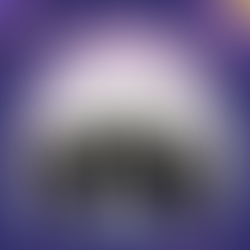Laurie Erskine’s patch_t41b Explores Humanity, Technology, and the Post-Human Soundscape
- BabyStep Magazine
- Nov 10, 2025
- 4 min read

London-based jazz pianist, composer, and producer Laurie Erskine—formerly the frontman of psych-rock outfit Club Kuru—returns with the second single from his experimental solo project patch_t41b. Titled “should i”, the track pushes deeper into a dystopian sound world, merging glitchy electronics, grainy textures, and post-apocalyptic atmospherics with a faintly human thread of vocals.
Following his debut single Dust, “should i” continues Erskine’s exploration of a post-human era, reflecting both personal and collective tensions between technology and human emotion. The EP was developed through live improvisation in intimate London venues, blending influences from Jeff Buckley, Terry Riley, Burial, and Fennesz into an abstract yet deeply emotive narrative.
1. “Should I” feels both mechanical and deeply human - there’s this tension between glitch and emotion that runs through it. What drew you to explore that contrast, and what does “post-human” mean to you in a musical sense?
With the sound of Should I, I wanted to capture the push and pull between human and machine. That friction between us and technology that defines so much of modern life. I wonder if the tension, which I think is everywhere right now, comes from constantly being told we should be happy and enjoy ourselves but actually we all feel pretty depressed and helpless. We're in this tech revolution, yet somehow we feel like we're losing the ability to function, almost turning into background characters or NPCs.
I guess my big idea with this project is to create a kind of soundtrack to the times which is both personal and collective.
‘Post-human’ can mean a few things… I probably use it incorrectly and inconsistently depending on the context. In a theoretical sense, drawing on Rosi Braidotti, it is the decentering of the human, an invitation to think about ALL forms of life in order to imagine a radical new present. For this project, I use it more literally: post-human as ‘after human’, an era where our agency and freedom are diminished in response to the growing power of technology and those that control it. Musically, I like to think of the voice in the project as the very last, fading echo of a human being, just a disembodied trace left in this tech-dominated future.
2. The track builds on the atmosphere of your debut single “Dust”, but feels darker and more abstract. Was there a particular idea or moment that pushed you further into that unsettling, dystopian sound world?
The project began with me sitting at the piano, improvising, attempting to capture the contradictions I mentioned above. Dust and Should I, and the other tracks on the record were never conceived as separate songs, they emerged as one continuous improvisation. This feels the most honest way for me to write. It includes my hopes and my pessimism and never concludes or feels settled. That is also how I perform the EP live, as an improvisation around the themes, all as one piece.
3. You’ve moved from the lush, psych-rock textures of Club Kuru into something far more fragmented and experimental with patch_t41b. How has that transition reshaped the way you write and think about composition?
Yep, it has been an interesting switch. Club Kuru was a sound I loved, it referenced a lot of the musicians I grew up listening to and admiring, but didn't quite align to my internal feeling and my experience of my surroundings. People used to say it had a West Coast feel, or they were surprised I wasn't from there…Eventually it became disorienting because there was a disconnection between me and the music I was making.
The process now is much simpler: it's just me and some keyboards. Before, there was a band which can confuse things sometimes and we were all trying to get it sounding perfect. That impulse is still there in this project but I think the style of music allows for error and spontaneity. There’s less chance of over-working it.
The bigger shift hasn’t been in the way I write or compose, but in how people respond to it. With CK, people immediately understood what the project was. With this project some people just don’t get it. I have to learn to get comfortable with that.
4. Your work references influences as diverse as Jeff Buckley, Terry Riley, and Burial - artists who all use emotion and texture in very different ways. How do those influences manifest in your own creative process?
The references are definitely diverse, but they all have something in common. I feel like all those artists have a sense of surrender in their work, a spiritual feeling where you sense they are in a state of acceptance and allowing the music to go its own way. They also all have a bleakness, a sadness, a painful emotional element in their music which I have always felt drawn to.
5. You’ve described patch_t41b as exploring the collision between humans and machines. In an era increasingly defined by technology and AI, do you see your music as a reflection of, or a response to, that shift?
I think reflection and response can be the same thing. A good reflection is a response.







































Comments